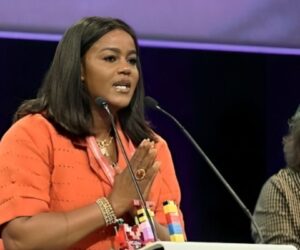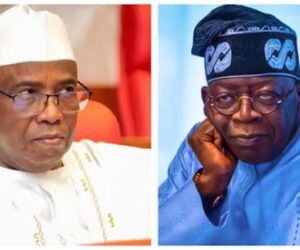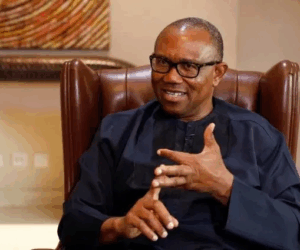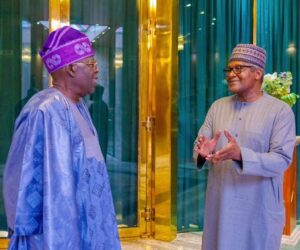A shocking terrorist attack disrupted service at Christ Apostolic Church (CAC) in Eruku, Kwara State, and the chilling footage from the church’s livestream has sparked nationwide outrage.
Across social media, Nigerians, including celebrities like Aproko Doctor and Mr Macaroni, are calling for urgent action under the hashtag #EndTerroristsKillingInNigeria.
The attack, reportedly carried out by armed men, left several worshippers injured or dead, and the live broadcast made the horror feel immediate and real for viewers far beyond the town.
Hauwa’s tweet painted a haunting picture: “I saw that old woman in a blue wrapper struggling to find cover, but her body was just not moving fast enough.”
Her words alone give a glimpse of the terror for anyone who couldn’t bring themselves to watch the video. Posts like hers have amplified public attention, ensuring the tragedy stays in the spotlight.
The resurgence of #EndTerroristsKillingInNigeria reflects deep frustration with Nigeria’s ongoing security crisis.
Faith Meets Frustration
For many, when the government fails to provide security, the only refuge seems to be in God. Religious figures like Jerry Eze and Nathaniel Bassey have called on divine judgement, while ordinary Nigerians wrestle with questions like, ‘Where was God when worshippers were under attack? ‘
The combination of faith, anger, and grief has created a digital storm, and everyone is calling on someone or something for intervention.
Everyday Terror, Every Day Headlines
Tragedies like this have become too familiar. Church services, or even ordinary commutes, can make the news of killings, abductions, and attacks feel routine.
Waje captured the collective heartbreak perfectly, tweeting about how such headlines appear so frequently that international governments are threatening to step in if Nigeria doesn’t act.
Johnny Drille, in a heartfelt post, expressed their frustration, not only at the violence itself but at the seeming indifference of citizens who appear unbothered or disengaged. In the face of such horrors, inaction feels like complicity.
Even Hauwa’s description of an elderly woman struggling to find cover is enough to unsettle anyone. Yet public outrage is often met with another challenge: apathy.
The all-too-common statement, “As long as my family and I are safe…” has drawn sharp criticism from voices like Mr Marcaroni, who call out a society willing to ignore wider suffering in the name of personal safety.
Eni Adeoluwa points to a deeper problem: systemic failure. Past regimes may have expressed shock or concern, but the current leadership often responds with silence, leaving citizens to doubt whether meaningful change will come.
A Call for Accountability
Apostle Emmanuel Irene captured precisely the anger and frustration of many citizens at the government’s failures.
Citizens have done their part, providing basic amenities and solving societal problems, yet the authorities continue to fall short in providing security or justice.
The trending hashtag after the Eruku attack shows a collective refusal to accept violence as normal. We need immediate action. All eyes are now on the authorities, waiting to see if online rage will translate into real-world measures or if it will once again end with a press statement.









